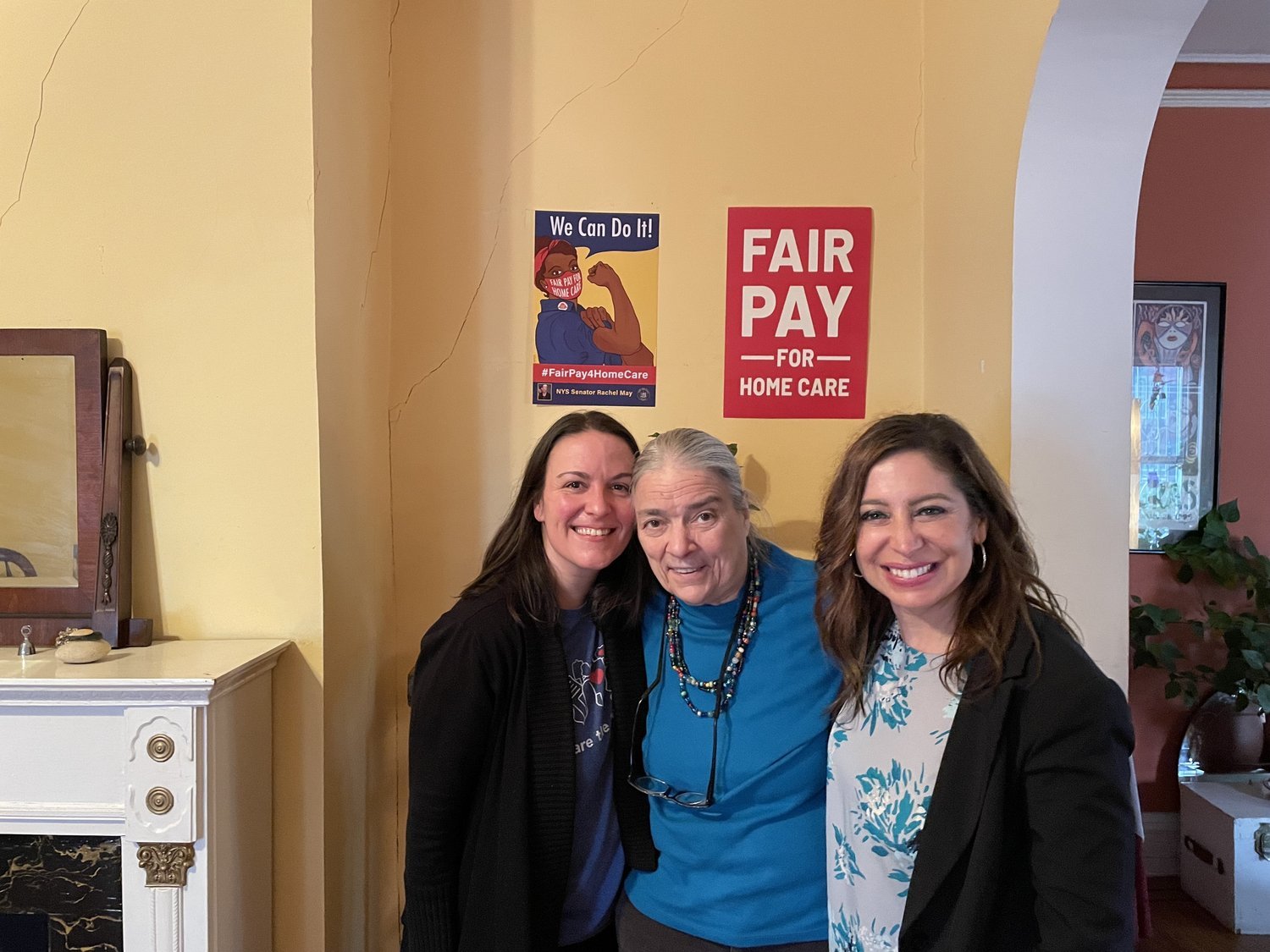Opinion: Governor Hochul’s father gets home care, why can’t the rest of us?
/Dr. Maggie Orenstein, her mother Janet and Assemblymember Jessica Gonzalez-Rojás. Eagle file photo by Jacob Kaye
By Dr. Maggie Ornstein
The Fair Pay for Home Care Act, as proposed and approved by both the Senate and Assembly would have raised home care worker wages to a living wage of $22.50 per hour or 150 percent of the minimum wage. However, it wasn’t passed in the latest budget and instead Governor Hochul would only agree to a $2 raise per hour, with another $1 next year.
This will bring the average hourly rate from $13.20 per hour to $15.20 this October and $16.20 hour in October 2023. By the end of 2023, increases in the state minimum wage will bump home care worker pay to $18 an hour. Still, this is insufficient to retain and attract new workers, given recent wage increases at Target and other employers.
Without full funding of Fair Pay for Home Care, New York will continue to have the worst home care workforce shortage in the nation as workers take jobs elsewhere, or even cut their hours to avoid losing public benefits such as SNAP, furthering the home care crisis.
Often overlooked is the way in which inadequate funding for home care is a state violation of the Olmstead Act, which requires that care must be provided in the least restrictive setting. Under current circumstances, a case could be made that insufficient funding for home care is a violation of Olmstead. When this is done, New York will be in the very difficult position of being open to a lawsuit similar to the recent successful one in Michigan.
Fair Pay for Home Care would have an obvious positive impact on NY’s 400,000 home care workers. It is less obvious how helpful it would be for the State’s 4 million family caregivers who do a majority of the long-term care and are “the backbone of long-term care provided in people’s homes”. Governor Hochul isn’t constrained by family caregiving because she can afford to pay a premium for home care workers to care for her father. This is a luxurious position to be in and one that is not available to any but the wealthiest New Yorkers.
Going further, I would argue that home care for her father facilitates the governor’s ability to hold the most powerful position in the state. Given her wealth and privilege, it is not surprising that she doesn’t grasp the full physical, emotional and financial impacts family caregiving has on families who have to make do with too little support.
However, as the first woman governor, it is shocking that she has not been more diligent in understanding this issue. Instead, she has continued in the footsteps of her predecessors, financially supporting the wealthy and using our tax dollars frivolously for things such as a football stadium. This leaves those who need care and rely on public assistance for their survival to continue to suffer some of the greatest indignities of our time.
Together, the statewide Caring Majority coalition, along with our bill sponsors, Assemblymember Dick Gottfried and State Senator Rachel May, plus scores of other legislators, will keep fighting for a New York in which home care workers are valued and all of our families can receive the care we need to thrive.
Dr. Maggie Ornstein is a family caregiver and public health geographer who studies long-term care. She is a member leader of the NY Caring Majority and guest faculty at Sarah Lawrence College.




